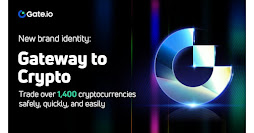What is a decentralized autonomous corporation (DAC)?
A decentralized autonomous corporation (DAC), also known as a decentralized autonomous organization (DAO), is an organization that operates through rules encoded in smart contracts on a blockchain network, instead of being controlled by a central authority or group of individuals. DACs are designed as a new model for online collaboration and decision-making, with the potential to improve transparency, scalability, and efficiency compared to traditional forms of organizations.
In a DAC, ownership of the organization is represented through cryptographic tokens, which provide members with voting rights and decision-making power. Members can propose changes to the organization's rules or vote on proposals made by others, with decisions being made based on the consensus of all members. The smart contract code that governs the DAC is transparent and immutable, meaning that it cannot be altered without the agreement of the majority of members.
DACs can operate in a range of different industries and applications, such as finance, healthcare, and supply chain management. They have the potential to reduce costs, increase transparency, and improve decision-making, by enabling stakeholders to interact with each other in a trustless and secure manner.
However, DACs are still an evolving concept and there are also risks associated with their use, such as potential hacks or security vulnerabilities in the smart contract code. In addition, DACs may also face legal and regulatory challenges in some jurisdictions, as they challenge traditional models of centralized governance and control.
Overall, DACs represent an innovative approach to decentralized decision-making and governance, with potential benefits and challenges that will need to be carefully considered and evaluated as the technology continues to evolve and mature.
In a DAC, ownership of the organization is represented through cryptographic tokens, which provide members with voting rights and decision-making power. Members can propose changes to the organization's rules or vote on proposals made by others, with decisions being made based on the consensus of all members. The smart contract code that governs the DAC is transparent and immutable, meaning that it cannot be altered without the agreement of the majority of members.
DACs can operate in a range of different industries and applications, such as finance, healthcare, and supply chain management. They have the potential to reduce costs, increase transparency, and improve decision-making, by enabling stakeholders to interact with each other in a trustless and secure manner.
However, DACs are still an evolving concept and there are also risks associated with their use, such as potential hacks or security vulnerabilities in the smart contract code. In addition, DACs may also face legal and regulatory challenges in some jurisdictions, as they challenge traditional models of centralized governance and control.
Overall, DACs represent an innovative approach to decentralized decision-making and governance, with potential benefits and challenges that will need to be carefully considered and evaluated as the technology continues to evolve and mature.

Comments
Post a Comment